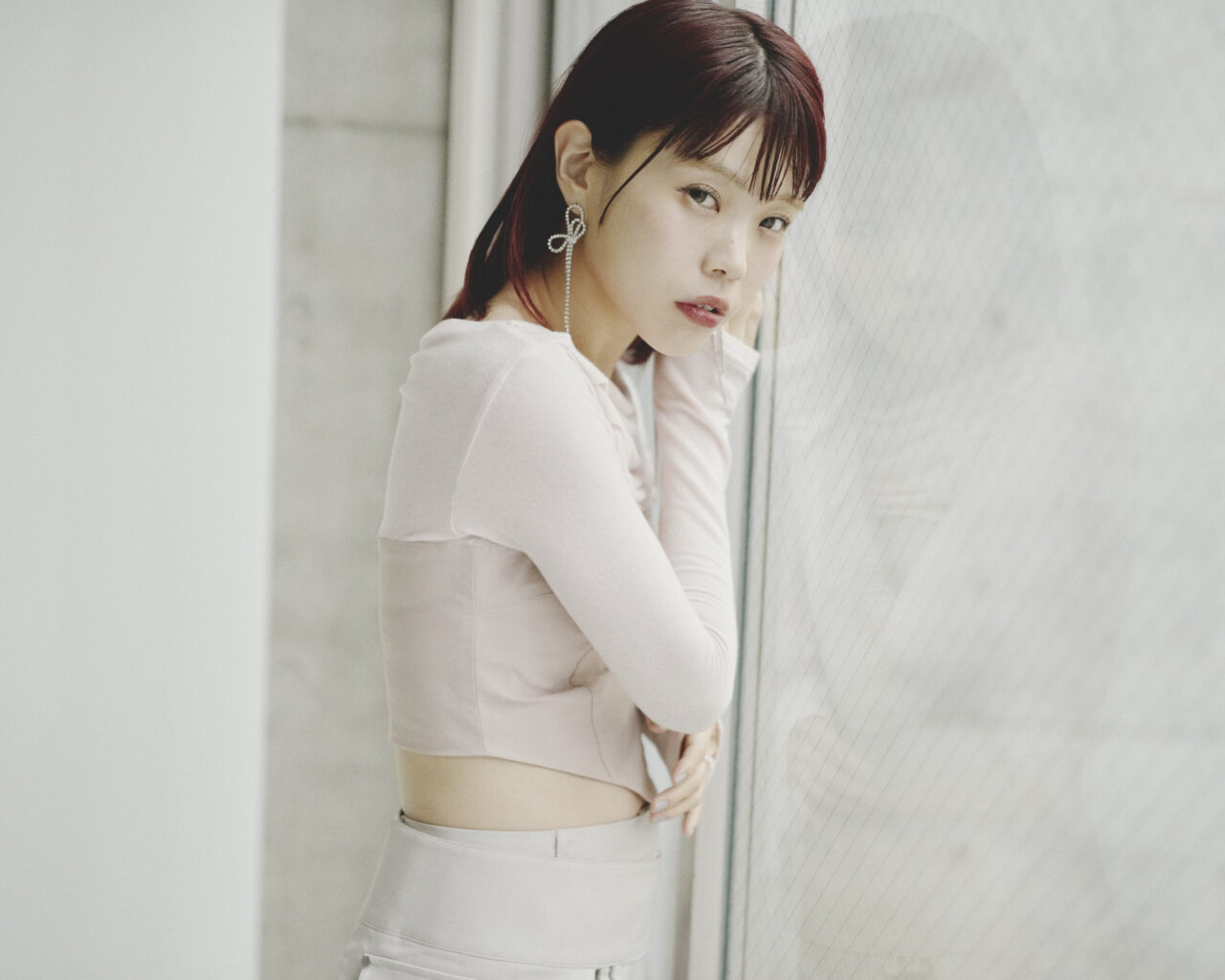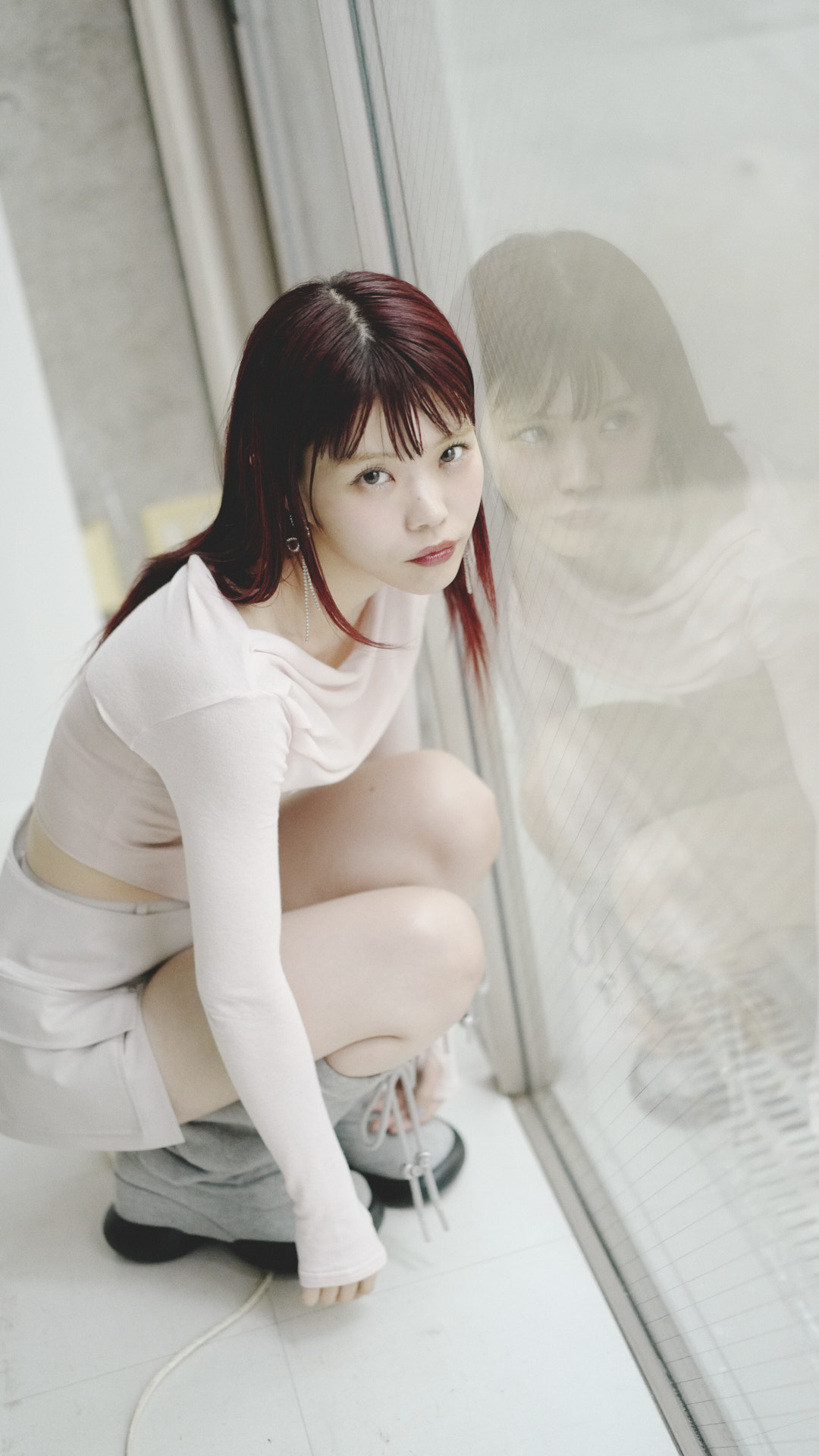INDEX
A Childhood Marked by Struggles in Communication
Looking back, how did you find the process of writing your essay?
AiNA: I was invited to write it around last spring or summer, and I took about a year to gradually work on it. At first, I honestly didn’t feel confident about writing just with words. There was an option to do interviews and have someone else turn them into text, but since I said I wanted to write it myself, I felt I had no choice but to keep going.
While working with the editor to organize my writing, I received a lot of encouraging feedback that helped me let go of my doubts. Leaning on that support, we completed the book together like a team.
Many celebrity books or essays are created by interviews and writers structuring the content, but you didn’t want to take that route.
AiNA: That’s right. I was well aware that I’m not very skilled at writing and lacked confidence, but my love for books was stronger. Because I love books, I really wanted to write it myself.
Your writing feels very genuine and sincere. It seems like if you tried to put on a front, your words wouldn’t flow.
AiNA: Thank you, that means a lot to me.

What surprised me was hearing that your mother even considered taking you to a doctor because you had such difficulty communicating with others. Talking to you now, it’s hard to imagine that was once true.
AiNA: I often wonder how much I’ve changed myself.
Your book really conveys how much you transformed through your relationships with others.
AiNA: Absolutely. My contemporary dance teacher, Natsuko Ozawa, and other teachers played a huge role. They used to scold me every day. For example, I was the kind of kid who would suddenly slam off the lights without thinking, even while others were still in the room. It was pretty odd. I just did whatever I wanted.
Sometimes I’d suddenly yell out loud, or even if I was chatting with friends, I’d abruptly start talking about myself whenever I felt like it. That’s obviously not acceptable behavior. So my dance teacher kept telling me things like, “Be more grateful to others,” “Show love,” and “Help people in need.” I learned not only dance but how to be a decent person. Slowly, I began to understand that.
At its core, it sounds like pure curiosity and impulsiveness. In a way, that’s probably why you can still write songs and perform contemporary dance today.
AiNA: I really feel that. Contemporary dance can be super embarrassing if you think about it logically. You try to express yourself by moving your face in tiny waves, like sand shifting, practicing that in front of a mirror. When you step back and think about it, dancing like you’re made of sand on your face is pretty surreal.
But when you’re inside the moment, it can even bring you to tears. And the instant you snap back to reality, you start laughing. So I tell myself, “I must have the talent to get completely lost in this, so I’ll embrace it,” and that’s how I approach contemporary dance. Maybe it’s because I was that way as a child.
It seems your teachers aimed to nurture that unique talent while helping you grow in a way that wouldn’t hold you back or unintentionally hurt others in society.
AiNA: Exactly. I’m really thankful to my teachers for that.


























